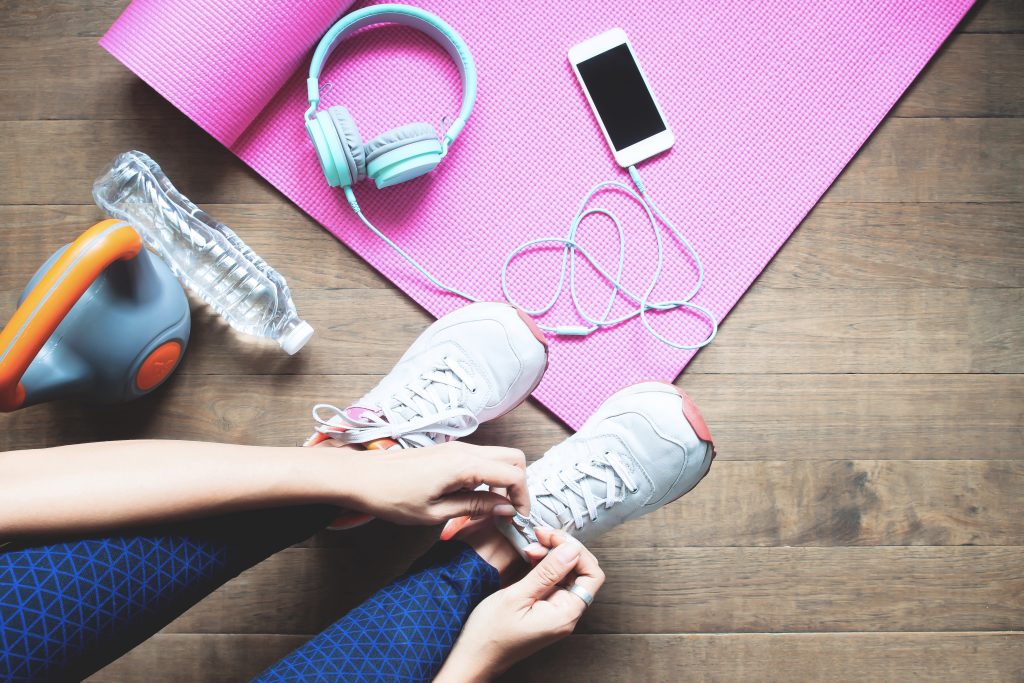So, you’ve made it to the gym or set up your home-workout area. Before jumping straight into your workout, there are a number of things you can do to ensure your safety and effectiveness of your workout to make it count.
Ensure your exercise space is clear
If you’re headed to the gym, make sure you pick an area that has plenty of space and is free from any slip, trip or fall hazards from the previous gym-goer.
Prefer a home workout? Make sure you have a space big enough that is clear of any slip, trip and fall hazards like toys, pets, rugs, children, furniture etc.
Check the temperature
You will find that exercising will naturally raise your body temperature, so it’s important to work out in an environment that isn’t too cold nor warm. If you’re working out from home and the heating is blaring, you might want to turn it down!
Wear loose-fitting comfortable clothing
Don’t wear clothing that is too restrictive as that is likely to make the exercises uncomfortable and difficult to perform.
Activewear shorts or three-quarter length leggings with a vest or t-shirt are great options to help you keep cool and comfortable during your workout.
Keep hydrated
You can lose around one and a half litres of fluid for every hour of exercise; so drink water before, during and after a session.
Even if you’re not working out, everybody should aim to drink the recommended 2-3 litres of fluid per day. Drink up!
Pay attention to your body
Make sure to take at least one rest day a week so your body can recover. Mild soreness over one to two days is normal but if uncomfortable bone or joint pain persists, this could indicate you aren’t correctly performing the exercises.
Go at your own pace
Moderate-intensity exercise that raises your heart rate (examples of this are brisk walking, water aerobics, bike riding, dancing) is recommended to support your health. However, if you feel this intensity is too difficult for you, start off at a lower intensity that feels right for you and progress gradually. Remember, some exercise is better than no exercise!
Warmup before, and cool down afterwards
A warmup should be for a minimum of 5 minutes and may consist of light-intensity cardio like marching on the spot to increase your heart rate before the main exercise session. You may also wish to do some mobility exercises to prepare your body for the workout ahead.
A cool down takes place at the end of a session where the exercise intensity gradually decreases to help your heart rate come down. You may wish to follow up with some stretches to reduce sore muscles and joints the next day.
Be careful what you watch online
Whilst there is a lot of great video content available online, unfortunately there is also some content which shows incorrect technique and instructions which may lead to you having a poor workout or injuring yourself.
Make sure your equipment is safe to use
If you are using any equipment such as resistance bands, dumbbells or an exercise ball, make sure it appears to be in good working condition. Always read any instructions before you begin.
Check your technique and follow the teaching points
Correct exercise technique is important to ensure your safety and effectiveness of your workout. If you aren’t sure about whether you are using the right technique, try and do the exercise in front of a mirror or ask someone to watch you whilst you do it.


